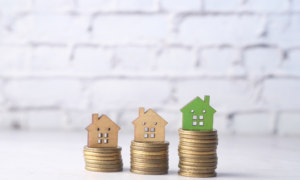As you step into retirement age, deciding whether to rent or buy a home is a key decision shaping your post-retirement years. Before making a choice, weigh factors such as income, mobility needs, financial goals, and your actual needs to find the option that fits your needs and budget. Whether renting or buying, ensure it’s the right choice based on your actual needs and financial capacity. A stable home can provide comfort and happiness in your retirement”.
Factors to consider when deciding to rent or buy a home
Whether you decide to rent or buy, many retirees opt for downsizing, regardless of whether they rent or buy. This helps reduce housing expenses such as mortgages, utility bills, and maintenance costs. It also simplifies life by eliminating unnecessary belongings.
Some crucial factors to consider when deciding to rent or buy include:
Retirement timeline: If you retire early and are content with your current residence, buying a house might be a better option.
Current home value: If you have significant equity from your old house, you might reinvest in a new property. Conversely, with less equity, consider renting and investing in more liquid assets.
Retirement goals: Opt for renting if you wish to live near family in expensive housing areas.
Liquidity needs: Renting provides higher liquidity in assets. Meanwhile, buying a house might tie up a considerable amount of assets within the property.
Remember, there’s no one-size-fits-all answer. Evaluate your individual circumstances and prioritize the factors most important to you for a comfortable and financially sound retirement.
Advantages and disadvantages of renting a home
Renting a home offers advantages in terms of lower costs, flexibility, and fewer commitments. However, it also comes with some drawbacks that need consideration.
Advantages:
- No repair or maintenance costs
- Ease of relocation when necessary
- Higher fixed interest rates.
- Flexibility to rent in multiple places before settling down
Disadvantages:
- No long-term ownership rights
- Rental costs may increase over time
- Risk of eviction if the contract expires without renewal
- Limited flexibility in renovations or modifications
Advantages and disadvantages of buying a home
Buying a home has advantages concerning ownership rights, investment potential, and stable expenses. However, it carries certain disadvantages that should be weighed carefully.
Advantages:
- Potential property appreciation over time
- Building long-term assets and ownership rights
- Stable housing costs with fixed interest rates
- Tax deductions on mortgage interest and property taxes
Disadvantages:
- Large initial costs when purchasing a house
- Difficulty accessing capital from property assets
- Lengthy selling process if relocation is necessary
- Risk of financial loss if the market declines
Guidelines for making the right decision between renting and buying a home
Here are some suggestions to assist in making the right decision:
- Rent if planning to relocate within 1-2 years.
- Buying is recommended if you plan to settle in one place for many years.
- Homeownership allows personalized living space and potential inheritance benefits.
- Renting often offers lower monthly costs while buying provides long-term housing stability.
- Consider relocating to elderly care facilities if health deteriorates.
- Factor in potential future moves to assisted living facilities.
The ideal choice hinges on your unique needs and circumstances. Carefully evaluate costs, benefits, and risks to make an informed decision for a comfortable and secure retirement. Consider seeking professional guidance for personalized advice.




